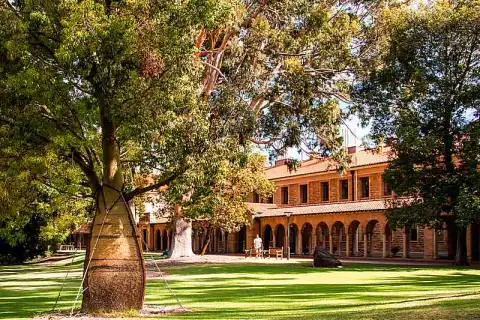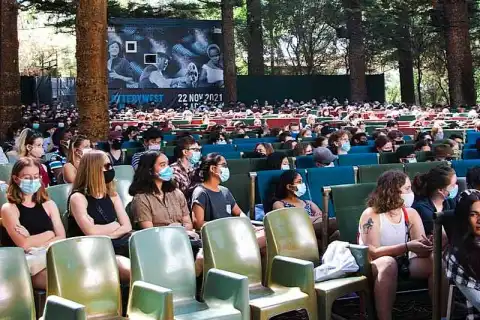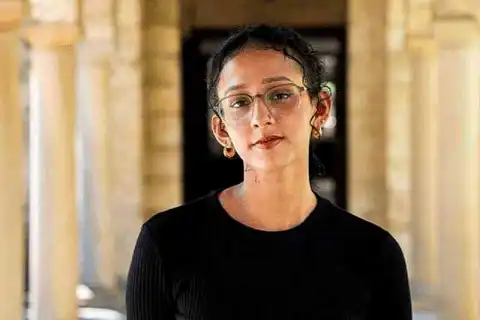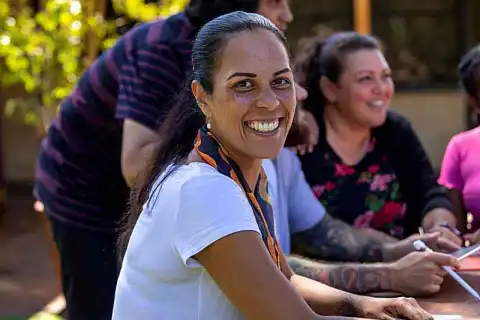Master of International Relations
- 2 years
- Duration
- 41,300 AUD/year
- Price
- Rolling admission
- Start
- Rolling admission
- Deadline
- Master
- Degree
- Campus
- Format
- Perth / Australia
- Location
Program description
The Master of International Relations is a three- or four-semester professional postgraduate degree. You can learn about international politics, focusing on the lively Indo-Pacific and Indian Ocean regions.
The course gives you the skills, knowledge, and connections to succeed in government, international and non-governmental organizations, the media, education, foreign affairs, and diplomacy. The curriculum's core component covers International Relations Theory and Practice, International Security, International Political Economy, the Evolution of International Society, and Governance in the International System.
Elective modules cover human rights, democracy, religion, non-governmental organizations, and global areas and powers. Our capstone unit options let you "practice international relations while studying international relations" as policymakers and diplomats responding to global crises through cooperative study with students, academics, and diplomats from our Indian Ocean regional partners.
The course's credited internship units can be done with regional, national, or international government agencies, embassies, think tanks, non-governmental organizations, or regional institutions. Research design training and supervised dissertations on any subject are available to promising students.
Program structure
- Students without a bachelor's degree incorporating a relevant major take 6 pts from Group A, 36 pts from Group B, and 6 pts from Group C.
- Students with a bachelor's degree incorporating a relevant major take 0 pts from Group A, 42 pts from Group B, and 6 pts from Group C.
- Coursework only: take 24 remaining pts from across groups B, C, and D.
- Coursework & dissertation: take 24 remaining pts from Group E.
Option - Group A
- POLS5661 Approaches to International Relations (6)
Option - Group B
- POLS5010 NGOs, Governance and Development (6)
- POLS5506 Gender and International Relations (6)
- POLS5507 Geopolitical Flashpoints (6)
- POLS5611 Religion, Global Identities and World Politics (6)
- POLS5631 International Relations of the Asia–Pacific (6)
- POLS5641 International Security (6)
- POLS5651 Global Political Economy (6)
- POLS5681 Governance in the International System (6)
- POLS5686 International Norms, Ethics and Human Rights (6)
- POLS5691 Global Climate Politics (6)
Option - Group C
Upon request
Option - Group D
Upon request
Option - Group E
- POLS5682 Responding to International Crises (6)
- SVLG5001 McCusker Centre for Citizenship Internship (6)
- WILG5001 Work Integrated Learning Internship Program (6)
- ASIA5001 Key Debates in the Asian Region (6)
- COMM5104 Public Communication (6)
- ENVT5518 The Sustainable Development Goals (6)
- GEOG5411 Regional Development in the Global Context (6)
- POLS5105 International Relations in the Indian Ocean Region (6)
- POLS5501 The Politics of Public Policy (6)
- POLS5503 Public Administration (6)
- POLS5612 World Politics: Muslims in the West (6)
- POLS5684 China and the World (6)
- PUBH5783 Health in an Era of Environmental Change (6)
- SOCS4100 Social Sciences Research Skills (6)
- SOCS5551 Master's Dissertation Part 1 (6)
- SOCS5552 Master's Dissertation Part 2 (6)
- SOCS5553 Master's Dissertation Part 3 (6)
Price
- Tuition fee — 41,300 AUD per year.
Requirements for applicants
To be considered for admission to this course an applicant must have
- a Bachelor's degree, or an equivalent qualification, as recognised by UWA; and
- the equivalent of a UWA weighted average mark of at least 50 per cent; and
- successfully completed prior study in a field relevant to International Relations; or
- completed a Graduate Certificate or Graduate Diploma in International Relations at UWA.
English competency
- Minimum overall IELTS score of 6.5, with no band less than 6.0.
For more information on requirements, please contact your Edumapple manager.
About the university
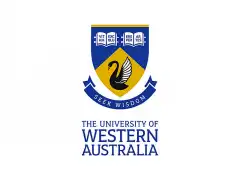
With a founding purpose to "advance the prosperity and welfare of communities," the University of the State was established in 1911 and opened its doors in 1913 to a small student body of 184. More than 28,000 students hailing from 115 different countries are now enrolled.
In the realms of education, research, and student success, UWA has been at the forefront of groundbreaking innovations since its inception. However, a university is more than just a place to get a degree and do research.
Throughout Western Australia, the country, and the globe, UWA has played an important role in advancing knowledge, culture, and the economy for over a century.
As the sole institution in Western Australia to be ranked in the top 100 globally, UWA has earned praise for its creative curricula, strong ties to local businesses, dedication to the student experience, and groundbreaking research.
Choosing to study at UWA means becoming a member of a community that has a reputation for leading good change, both locally and globally. You will also become part of a network of dedicated and innovative leaders who are determined to make a difference.

